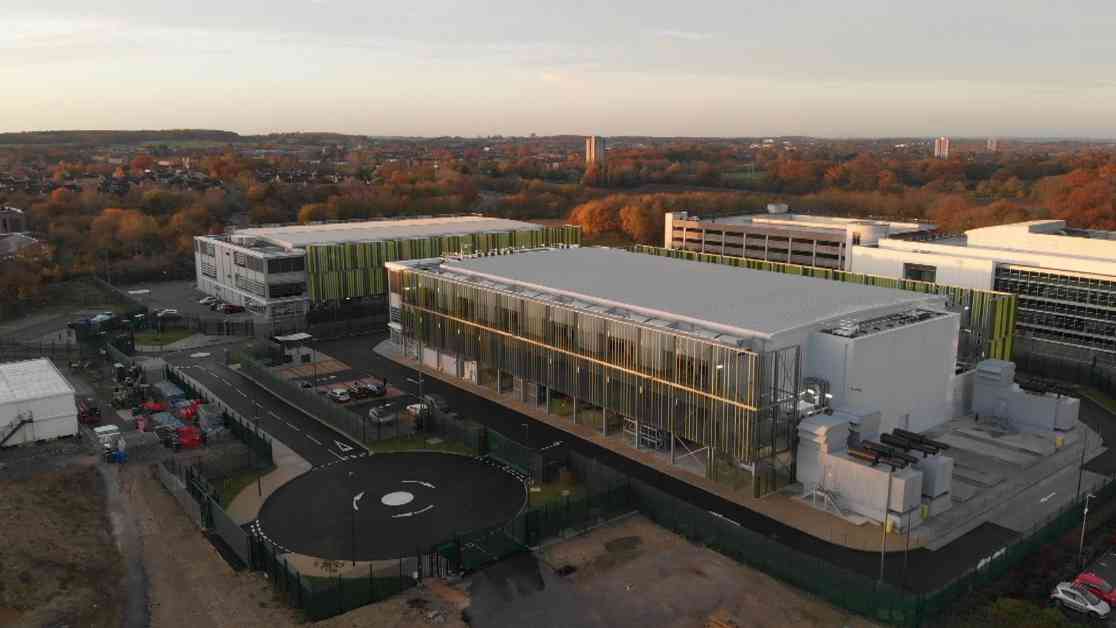The UK is being warned that without a solid data strategy in place, it may risk losing its lead in artificial intelligence (AI) development. Data centres, which are essential for cloud computing and powering AI technologies, are crucial components of the digital economy. Currently, the UK is the largest data hub in Europe, with over 500 data centres predominantly located in the South East.
The industry has seen significant growth and demand, particularly fueled by the need for AI processing power. The British government has recently classified data centres as ‘critical national infrastructure’, highlighting their importance. However, experts argue that a more comprehensive strategy is needed to keep up with the rising demand.
Companies like Kao Data are expanding beyond the traditional base in the South East, with new developments in regions like Greater Manchester. Spencer Lamb, Kao’s chief commercial officer, stressed the need for a UK-wide data centre strategy to distribute resources more evenly across the country. He emphasized the importance of planning and sustainability, considering the massive power consumption of data centres.
The industry’s move towards sustainable growth is exemplified by Kao Data’s new development in Manchester, utilizing existing industrial sites and grid connections. This approach not only addresses the demand for data centres but also contributes to economic development in different regions. Greater Manchester’s mayor, Andy Burnham, recognizes data centres as a vital part of infrastructure to boost the local economy.
However, expansion plans are facing challenges, particularly in the South East where land prices are high, and residents are resistant to new developments. In places like Abbotts Langley, proposed data centre projects are met with opposition due to environmental concerns and impacts on local communities. The tension between development needs and preserving green spaces underscores the importance of sustainable planning and community engagement.
Despite the challenges, the government is committed to facilitating infrastructure development, including data centres. Reforms to the planning system aim to streamline the process and ensure that development meets real needs without compromising the environment. Balancing economic growth with environmental preservation remains a key priority for policymakers and local authorities.
Overall, the future of the UK’s AI leadership relies on a cohesive data strategy that considers sustainability, regional distribution, and community interests. By leveraging resources effectively and engaging stakeholders, the country can maintain its competitive edge in the global AI landscape while supporting economic growth and innovation across different regions.










